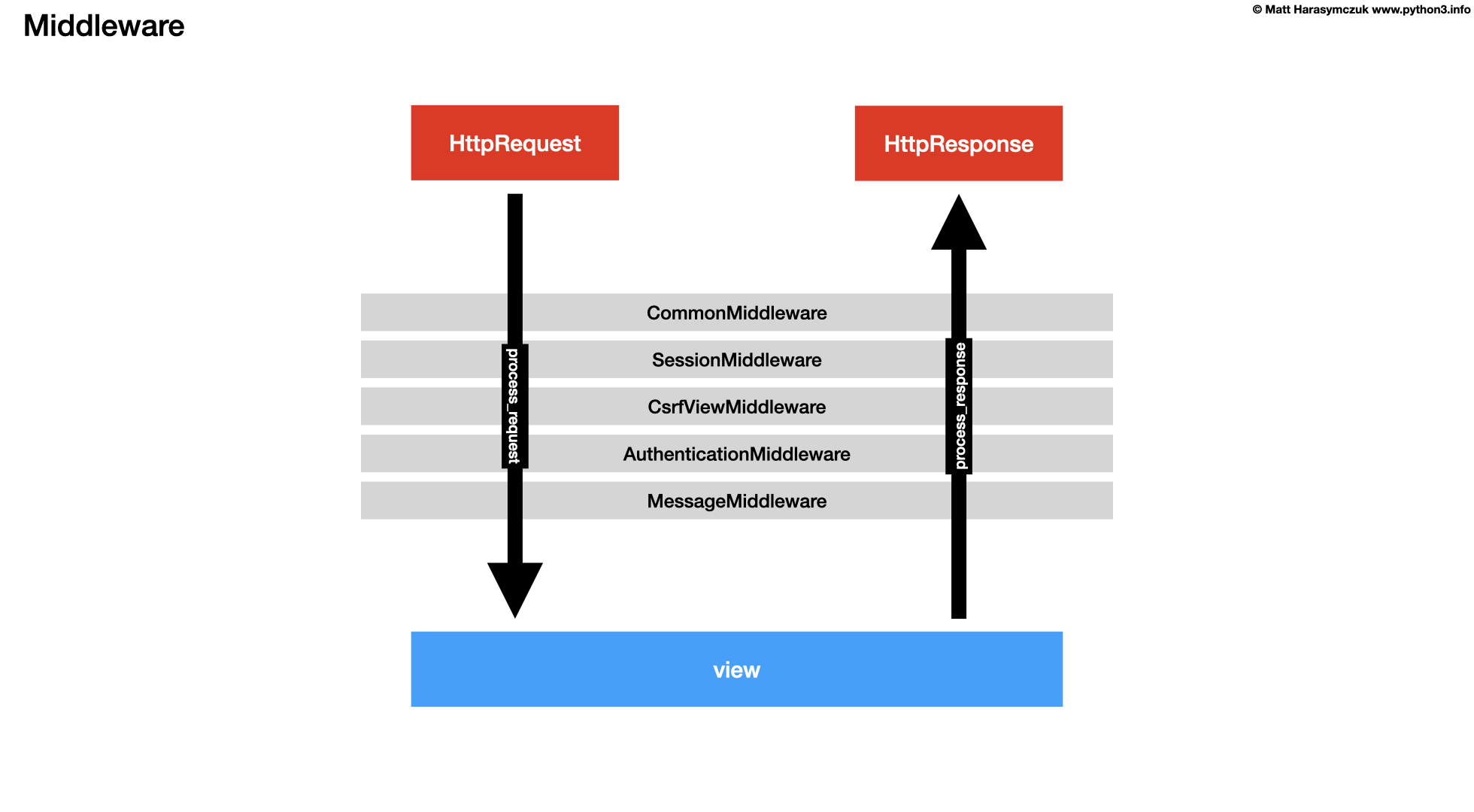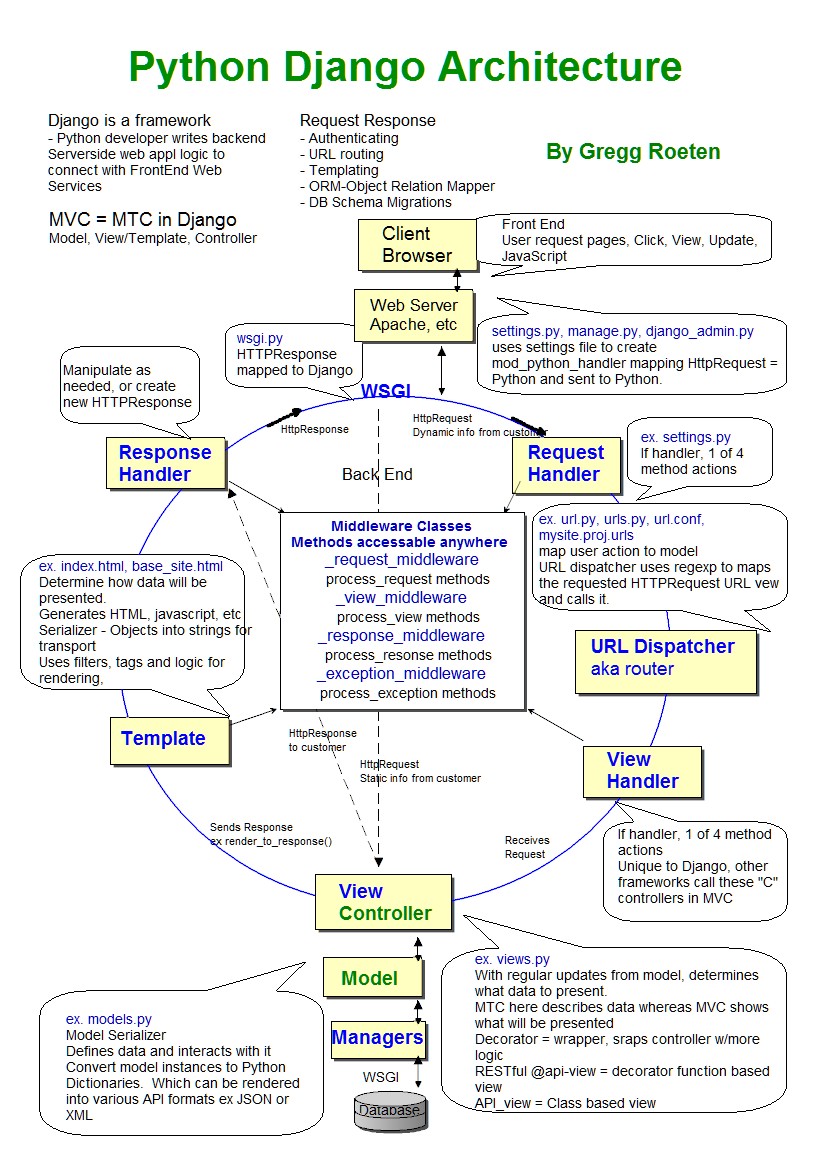14.1. Middleware About
Middleware is a framework of hooks into Django's request/response processing.
It's a light, low-level "plugin" system for globally altering Django's input or output.
A middleware factory is a callable that takes a
get_responsecallable and returns a middleware.A middleware is a callable that takes a request and returns a response, just like a view.
14.1.1. Process Request/Response

14.1.2. Request-Response Flow

14.1.3. Example
>>> class SimpleMiddleware:
... def __init__(self, get_response):
... self.get_response = get_response
... # One-time configuration and initialization.
...
... def __call__(self, request):
... # Code to be executed for each request before
... # the view (and later middleware) are called.
...
... response = self.get_response(request)
...
... # Code to be executed for each request/response after
... # the view is called.
...
... return response
The get_response callable provided by Django might be the actual view
(if this is the last listed middleware) or it might be the next middleware
in the chain. The current middleware doesn't need to know or care what
exactly it is, just that it represents whatever comes next.
By default, Django assumes that your middleware is capable of handling only synchronous requests. To change these assumptions, set the following attributes on your middleware factory function or class:
sync_capableis a boolean indicating if the middleware can handle synchronous requests. Defaults toTrue.async_capableis a boolean indicating if the middleware can handle asynchronous requests. Defaults toFalse.
If your middleware has both sync_capable = True and
async_capable = True, then Django will pass it the request without
converting it. In this case, you can work out if your middleware will
receive async requests by checking if the get_response object you are passed
is a coroutine function, using asyncio.iscoroutinefunction().
The returned callable must match the sync or async nature of the
get_response method. If you have an asynchronous get_response,
you must return a coroutine function (async def).